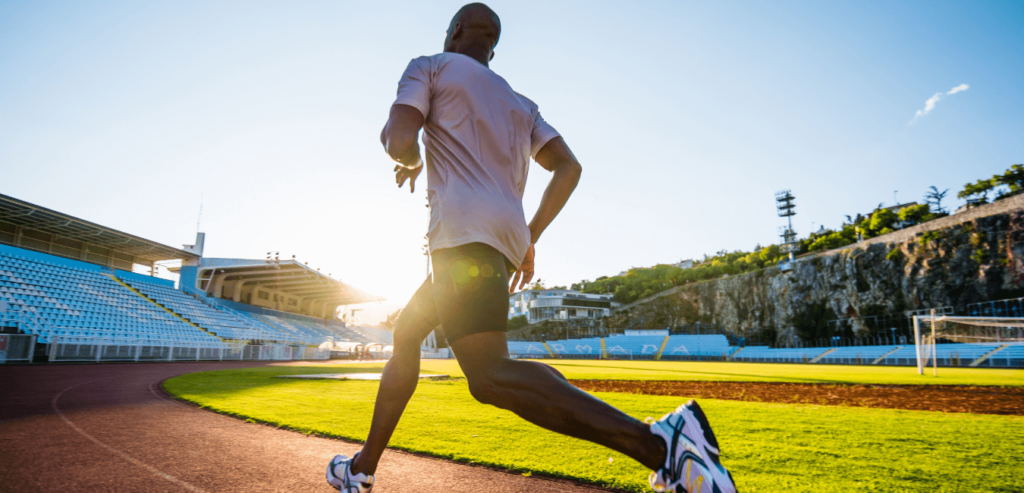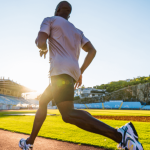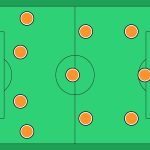In the stadium’s roar, under the glare of floodlights, millions watch — but few see what truly unfolds inside an athlete’s mind. While the body performs under pressure, the mind often trembles in silence. That invisible tension — sports anxiety — is one of the most powerful and least understood forces in competitive performance.
From Olympic champions to youth players, anxiety can make the strongest legs heavy and the sharpest reflexes slow. Yet, for many, learning to master it becomes the difference between breaking down and breaking through.
What Exactly Is Sports Anxiety?
Sports anxiety is not just “nervousness.” It’s a physiological and psychological response to stress — the body’s fight-or-flight system activating before or during competition. Experts distinguish between two types:
| Type of Anxiety | Description | Common Symptoms |
| Cognitive Anxiety | Worry, overthinking, fear of failure | Racing thoughts, indecision, loss of focus |
| Somatic Anxiety | Physical symptoms caused by stress hormones | Sweating, rapid heartbeat, tense muscles, nausea |
A certain level of anxiety can enhance performance — sharpening focus and alertness.
But when it exceeds optimal levels, it causes paralysis by analysis — the brain overrides instinct, and the body “forgets” what it’s trained to do.
The Psychology of Pressure
At its core, performance anxiety is rooted in expectation — the weight of outcome replacing the joy of execution. Sports psychologists call this “ego threat”: when athletes tie self-worth to results, the fear of failure grows until it overshadows the love of competition.
Classic examples:
- A tennis player double-faulting in a decisive tiebreak.
- A striker missing penalties after scoring hundreds in training.
- A gymnast freezing mid-routine under Olympic lights.
The paradox?
The more an athlete cares about winning, the harder it becomes to perform freely.
Voices from the Arena
Elite athletes are increasingly open about mental struggles once hidden behind medals and smiles.
- Simone Biles, the most decorated gymnast in history, withdrew from Olympic finals in 2021, saying, “I have to focus on my mental health.”
- Michael Phelps, 28-time Olympic medalist, has spoken about anxiety, depression, and the need to “train the mind as seriously as the body.”
- Marcus Rashford, Naomi Osaka, and Kevin Love have all shared similar experiences — breaking taboos and inspiring a new era of openness.
Their honesty reframed anxiety not as weakness, but as part of the athlete’s human condition.
How Athletes Learn to Overcome Anxiety?
1. Breathing and Mindfulness
Simple, powerful, and evidence-based.
Breathing exercises lower cortisol levels, while mindfulness trains attention to the present moment, disconnecting from outcome-based thinking.
Techniques include:
- Box Breathing (4-4-4-4): inhale 4s → hold 4s → exhale 4s → hold 4s.
- Body Scan Meditation: observe tension and release it consciously.
- Mindful pre-game routines to anchor focus.
2. Visualization and Mental Rehearsal
Elite performers “play the game” in their mind before they ever step onto the field.
Research from Harvard Medical School shows that visualizing successful execution activates the same neural pathways as physical practice.
Skiers mentally descend mountains; strikers visualize goals; archers rehearse perfect releases.
The mind doesn’t distinguish vividly imagined success from real movement — it simply learns confidence.
Cognitive Reframing
Athletes learn to reinterpret anxiety signals not as danger, but as readiness. Instead of “I’m nervous,” they think, “My body is preparing to perform.” This reframing transforms stress hormones (adrenaline, noradrenaline) into performance fuel. As sports psychologist Dr. Jim Afremow puts it:
“The body doesn’t know the difference between excitement and anxiety — only the mind decides.”
Routines and Rituals
Repetition breeds stability. Pregame rituals — music, stretching, self-talk, or visualization — create psychological anchors that tell the brain: “I’m ready.” These routines reduce uncertainty, one of the main triggers of anxiety.Serena Williams ties her shoelaces the same way before every match. Cristiano Ronaldo follows an identical tunnel ritual before entering the pitch. These small acts build a fortress of familiarity around chaos.
Professional Support
Mental coaches and sports psychologists are now standard across top clubs and federations. Sessions focus on resilience training, focus control, and emotional regulation, much like physical conditioning. Even technology now assists — apps like Headspace, Calm, and biofeedback devices measure heart rate variability (HRV) to help athletes monitor stress in real time.
The Science of Recovery: Body and Mind as One
Sports anxiety is not purely mental — it’s biological. When cortisol and adrenaline flood the body, muscles tighten, coordination falters, and reaction time suffers.
That’s why modern recovery integrates neurophysiology:
- Deep sleep cycles for neural reset.
- Controlled cold exposure and contrast therapy.
- Nutrition that supports serotonin and dopamine balance.
The brain is an organ — and like any muscle, it needs rest to perform.
The Culture Shift: Mental Health as Performance Health
What was once dismissed as “weakness” is now seen as strength through awareness. Teams like Liverpool FC, Golden State Warriors, and Team USA Swimming employ full-time mental performance departments.
Sponsors, too, are changing tone: Nike’s “You Can’t Stop Us” and Adidas’ “Impossible Is Nothing” campaigns now celebrate mental resilience, not just physical power.
The stigma is breaking. The message is clear — mental health is performance health.
The Edge of Calm
Athletes will always feel fear. The goal isn’t to eliminate anxiety, but to make peace with it. Nerves mean you care. They mean you’re alive.
Champions aren’t those who silence the noise — they are those who find rhythm within it. As Michael Jordan once said:
“I’ve missed more than 9,000 shots in my career. I’ve lost almost 300 games.
I’ve failed over and over again in my life — and that is why I succeed.”
Final Thought
In the arena, anxiety is inevitable — but it’s also trainable. The strongest athletes aren’t fearless; they’re familiar with fear. They learn to breathe through it, think through it, and play through it. Because in the end, the greatest victory isn’t over an opponent — it’s over the voice inside that says, “You can’t.”








Laisser un commentaire